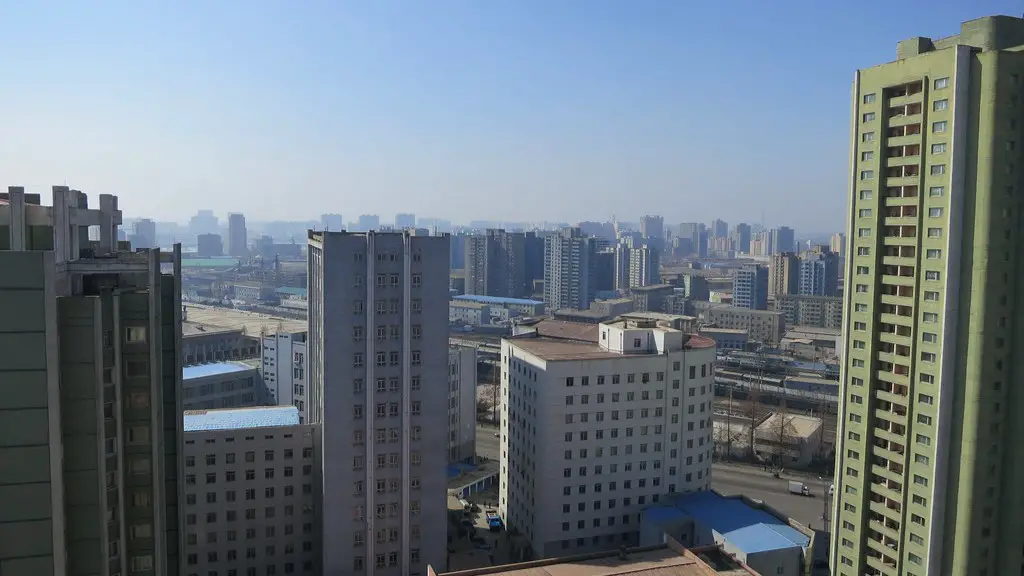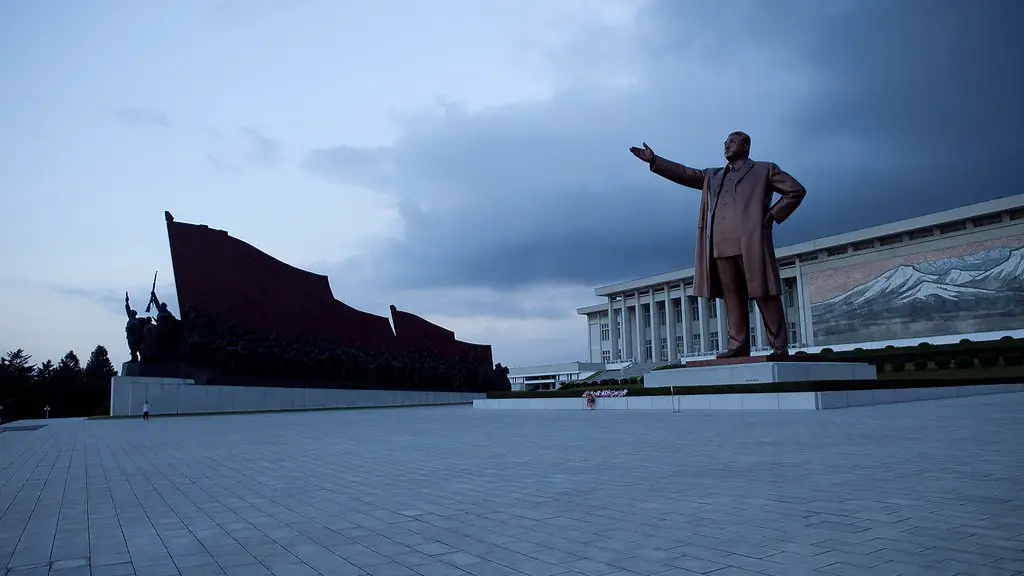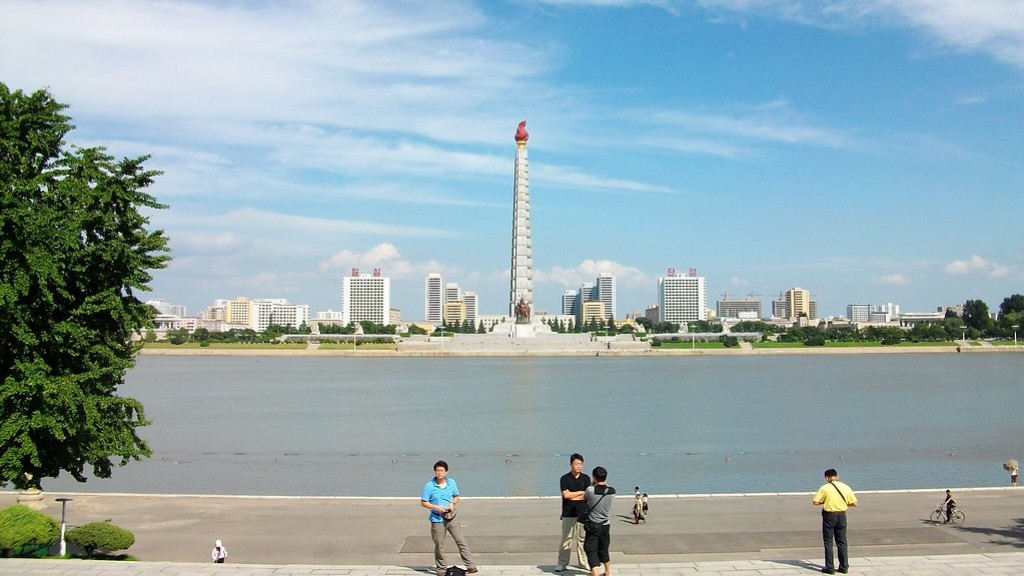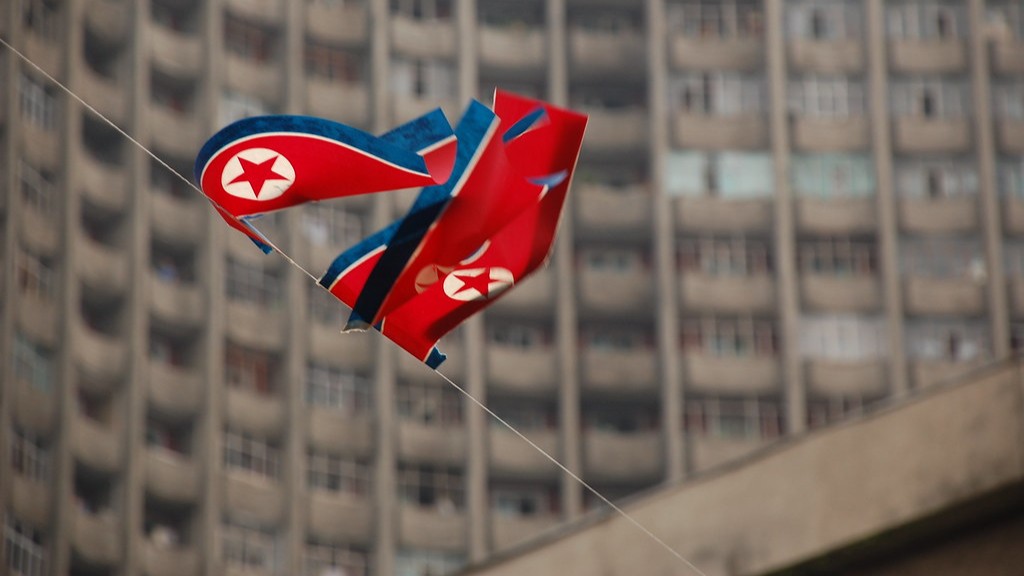Since the Korean War, North Korea has been a communist state, ruled by the Kim dynasty. The country has a cult of personality around the Kim family and aggressive policies towards South Korea and the West. Despite its isolation, North Korea continues to be involved in international disputes and its nuclear program is a source of concern for the global community.
Since its establishment in 1948, the Democratic People’s Republic of Korea (DPRK) has been a communist state. The ruling party, the Workers’ Party of Korea (WPK), operates on the principle of democratic centralism, a concept borrowed from the Soviet Union. According to this doctrine, the WPK is the country’s supreme political organ, and it represents and leads the nation. The WPK is organized hierarchically, with a central committee at the top, followed by provincial, city, and county committees. Party members elect the central committee, which, in turn, elects the party leadership.
The WPK is the only political party allowed in the DPRK, and party membership is required for high-level government and military positions. The party controls the media and regulates all aspects of public life. It promotes and enforces North Korean values and standards, and it strives to control the population through a system of informers and rewards for loyalty. The party also operates a elaborate system of political prison camps, where those deemed a threat to the regime are imprisoned, tortured, and sometimes executed.
Is North Korea a Communist?
In 2009, references to communism were removed from the North Korean Constitution. However, in January 2021, the WPK reasserted its commitment to communism. This commitment may be due to the WPK’s desire to return to its roots or to signal a change in the party’s direction.
The North Korean political system is based on the principle of centralization. The constitution defines North Korea as a “dictatorship of the people’s democracy” under the leadership of the Workers’ Party of Korea (WPK). The WPK is given legal supremacy over other political parties.
How did North Korea became a Communist
The United Nations General Assembly’s acceptance of the report of UNTCOK on 12 December 1948 signaled international recognition of the Republic of Korea as the “only lawful government in Korea.” This put pressure on the North Korean government to conform to Communist ideology, and by 1949 the country was a full-fledged Communist state.
The North Korean economy is heavily reliant on central planning, with the government controlling all aspects of economic activity. This centrally-planned approach has led to some success in terms of economic growth, but it has also resulted in significant problems and challenges. In recent years, North Korea has begun to liberalize its economy and allow more market-based activity, but the country still faces significant challenges in terms of economic development.
What countries are communist?
The communist states that exist today are China, Cuba, Laos, Vietnam, and North Korea (DPRK). These countries have chosen to adopt communism as their political and economic system, and they have been largely successful in doing so. Each of these countries has its own unique history and culture, and they have all managed to maintain their communist ideals despite the challenges that they have faced.
Under communism, the state owns and controls most property and economic resources. This means that the government can centrally plan the economy and make decisions about what to produce and how to distribute resources. Socialism also involves the government playing a role in the economy, but there is more of a focus on democracy and workers’ self-management. In socialism, citizens share equally in economic resources, and the government is democratically elected.
Marxist-Leninist states are those that follow the political ideology of Marxism-Leninism. This ideology advocates for a socialist state in which the working class holds power. Marxist-Leninist states typically have a single-party system, and the ruling party is typically the Communist Party. These states have been led by some of the most famous Communist leaders in history, such as Mao Zedong in China and Fidel Castro in Cuba.
Capitalism and communism are two very different economic systems. Capitalism is based on private ownership of businesses and industry, while communism is based on public ownership of the means of production. In capitalism, individuals are free to start their own businesses and to make profits. In communism, the government owns the means of production and makes decisions about how to use them. Both systems have their pros and cons, but capitalism is generally more successful in promoting economic growth and individual freedom.
How does North Korea control its citizens
Human rights in North Korea are abuses. The government continues to perpetrate extrajudicial killings, forced disappearances, arbitrary detention, rape, and torture. Conditions in the political prison camps are incredibly harsh and life-threatening, with prisoners facing starvation, exposure to the elements, and forced labor. In recent years, the government has also increasingly restricted freedom of religion and beliefs.
It is interesting to note that while the Soviet Union, a prominent example of communism, collapsed in 1991, China, another prominent example of communism, has revised its economic system to include elements of capitalism. This shows that communism is not a static ideology, but is instead constantly evolving. While the Soviet Union was not able to make communism work in the long term, China has been able to adapt communism to its own needs and has thus been more successful.
Which Korea is a dictatorship?
The Democratic People’s Republic of Korea (DPRK), also known as North Korea, is an authoritarian state led by the Kim family for 70 years. The Kim family has held onto power through a combination of totalitarianism, nepotism, and propaganda. The country’s government controls every aspect of its citizens’ lives, from what they watch on TV to where they live and work. North Korea is one of the most isolated countries in the world, and its citizens have very little contact with the outside world.
Juche is an ideology that stresses self-reliance, independence, and self-sufficiency. It is based on the principle that the people of North Korea are the masters of their own destiny and that they should be self-reliant in order to achieve their goals. The Juche idea also stresses the importance of a strong and united Korea, which is achieved through the prioritization of the country’s interests over those of other nations.
Is all of Vietnam communist
The Communist Party of Vietnam is the ruling party of the Socialist Republic of Vietnam, and it controls all organs of the government. Most government appointees are members of the Communist Party, and the party controls all aspects of the government.
The Economist Intelligence Unit’s (EIU) full democracy rating for South Korea in 2022 is very good news. This rating is based on a number of factors, including freedom of expression, freedom of association, and a fair electoral process. The EIU’s full democracy rating is a testament to the strength of South Korea’s democratic institutions and the vibrancy of its civil society.
Why is North Korea so poor?
There have been reports of widespread starvation in North Korea in 2021. This is due to the fact that North Korea has a command economy, which means that the government has complete control over all monetary exchanges. This lack of competition between businesses causes the economy to remain stagnant, which in turn leads to widespread starvation.
The main goals of communism are to establish a classless society, where everyone is equal and the government controls the means of production. Communists believe that this will lead to a more just and fair society, where everyone has the same opportunities and everyone is able to fulfill their potential.
When did Russia stop being communist
In 1991, Mikhail Gorbachev removed the constitutional role of the Communist Party. This allowed non-communists to take power and as a result, Boris Yeltsin then became the first president of Russia.
There are a number of reasons why no country has ever experimented with pure socialism. First, socialism is a very complex economic system and there are a lot of different ways to organize it. This makes it difficult to design and implement a socialist system that would work in the real world. Secondly, socialism is often associated with totalitarianism and dictatorship, which makes it unattractive to many people. Finally, socialism has been tried in the past and it has not always been successful. The Soviet Union, which was the closest thing to a socialist state, had both successes and failures in terms of economic growth, technological advancement and welfare.
Warp Up
North Korea is considered a communist state, with a single party led by the Kim dynasty. The country has a centrally planned economy, with heavy state investment in key industries. However, there is also a growing private sector, particularly in the service industry.
In conclusion, North Korea is communist because it follows the ideas of Karl Marx and Friedrich Engels. The country has a single-party system and centralized planning. The government owns the means of production and controls the distribution of goods and services. North Korea also has a collectivized agricultural system.





